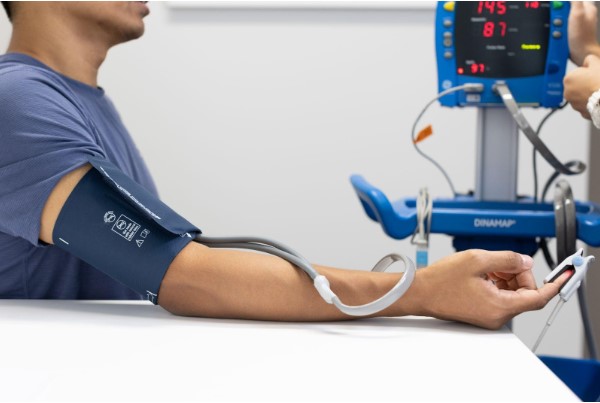We often wait for clear symptoms before considering a doctor's visit, especially when it comes to heart health. But did you know that many heart diseases can develop silently for years without causing noticeable discomfort? This highlights the vital importance of early and regular screening—it's not just a routine procedure, but an investment in your health and future.
Article Contents:

Why is Early Heart Disease Screening So Important?
Cardiovascular diseases are the leading cause of death worldwide. Many of these conditions can be prevented or treated more effectively if detected early. Early screening aims to:
- Identify risk factors: Such as high blood pressure, high cholesterol, diabetes, and family history. Knowing these factors allows you to take proactive steps to modify your lifestyle or start treatment if necessary.
- Detect disease before symptoms appear: Many heart diseases, like atherosclerosis, may not show symptoms until the disease is advanced.
- Prevent serious complications: Such as heart attacks, strokes, and heart failure.
- Improve treatment chances and outcomes: The earlier the problem is detected, the more effective and less complex the treatment options are.
"Silent" Heart Diseases: The Hidden Danger
Some heart conditions are known as "silent killers" because they may not cause noticeable symptoms until they reach a critical stage. These include:
- High blood pressure: Often has no symptoms but significantly increases the risk of heart attacks, strokes, and kidney disease.
- High cholesterol: Can lead to fatty deposits in arteries (atherosclerosis) without any warning signs.
- Diabetes (Type 2): Greatly increases the risk of heart disease and may go undiagnosed for years.
- Certain arrhythmias: Like atrial fibrillation, which some people may not feel but increases stroke risk.
Regular screening is the only way to detect these silent conditions and address them before they cause irreversible damage.

Key Benefits of Early Detection
Investing in early screening offers numerous benefits:
- Greater prevention opportunities: If risk factors are identified early, you can make lifestyle changes (like diet and exercise) that may prevent the disease from developing altogether.
- More effective, less invasive treatment: When disease is detected early, treatments are often simpler and more successful, potentially avoiding complex surgical procedures.
- Reduced risk of complications: Early detection significantly lowers the risk of serious complications like heart attacks, strokes, or heart failure.
- Improved quality of life: By maintaining heart health, you can enjoy a more active and vibrant life.
- Peace of mind: Knowing you're taking proactive steps to care for your heart health can provide reassurance.
Prevention is better than cure!
This saying applies especially to heart disease. Early screening is a crucial part of an effective prevention strategy.
Who Should Undergo Regular Heart Screening?
Generally, adults should begin regular heart screenings, but frequency and type of tests depend on several factors, including:
- Age: Heart disease risk increases with age. Regular screenings typically begin after age 40 for men and age 50 (or after menopause) for women, or earlier if risk factors exist.
- Family history: If you have a family history of early heart disease (father or brother before age 55; mother or sister before age 65).
- Personal risk factors: Like smoking, high blood pressure, high cholesterol, diabetes, obesity, sedentary lifestyle, and chronic stress.
- Existing symptoms: If you experience symptoms like chest pain, shortness of breath, or palpitations, you should see a doctor immediately regardless of age.
Your doctor will assess your risk factors and recommend an appropriate screening schedule.
What Are Common Early Detection Tests?
Common screening tests your doctor may recommend include:
- Blood pressure measurement: Should be checked regularly.
- Cholesterol test (Lipid Profile): Measures total cholesterol, LDL (bad cholesterol), HDL (good cholesterol), and triglycerides.
- Blood sugar test: To detect diabetes or prediabetes.
- Body Mass Index (BMI) and waist circumference assessment.
- Electrocardiogram (ECG): May be recommended periodically, especially with risk factors.
- Stress test: To evaluate heart function during exertion.
- Echocardiogram: To assess heart structure and function.
Not all these tests are necessary for everyone. Your doctor will determine the most appropriate tests for your situation.
Your First Step Toward a Healthy Heart
Don't wait for symptoms to care for your heart health. Early screening is a wise decision that can make a significant difference in your life. Talk to your doctor about your risk factors and which screenings are right for you.
At our clinic, we offer comprehensive screening programs tailored to your individual needs. Our goal is to help you understand your heart health and empower you to make informed decisions to keep it strong and healthy. Book your appointment today and invest in your most valuable asset: your health.